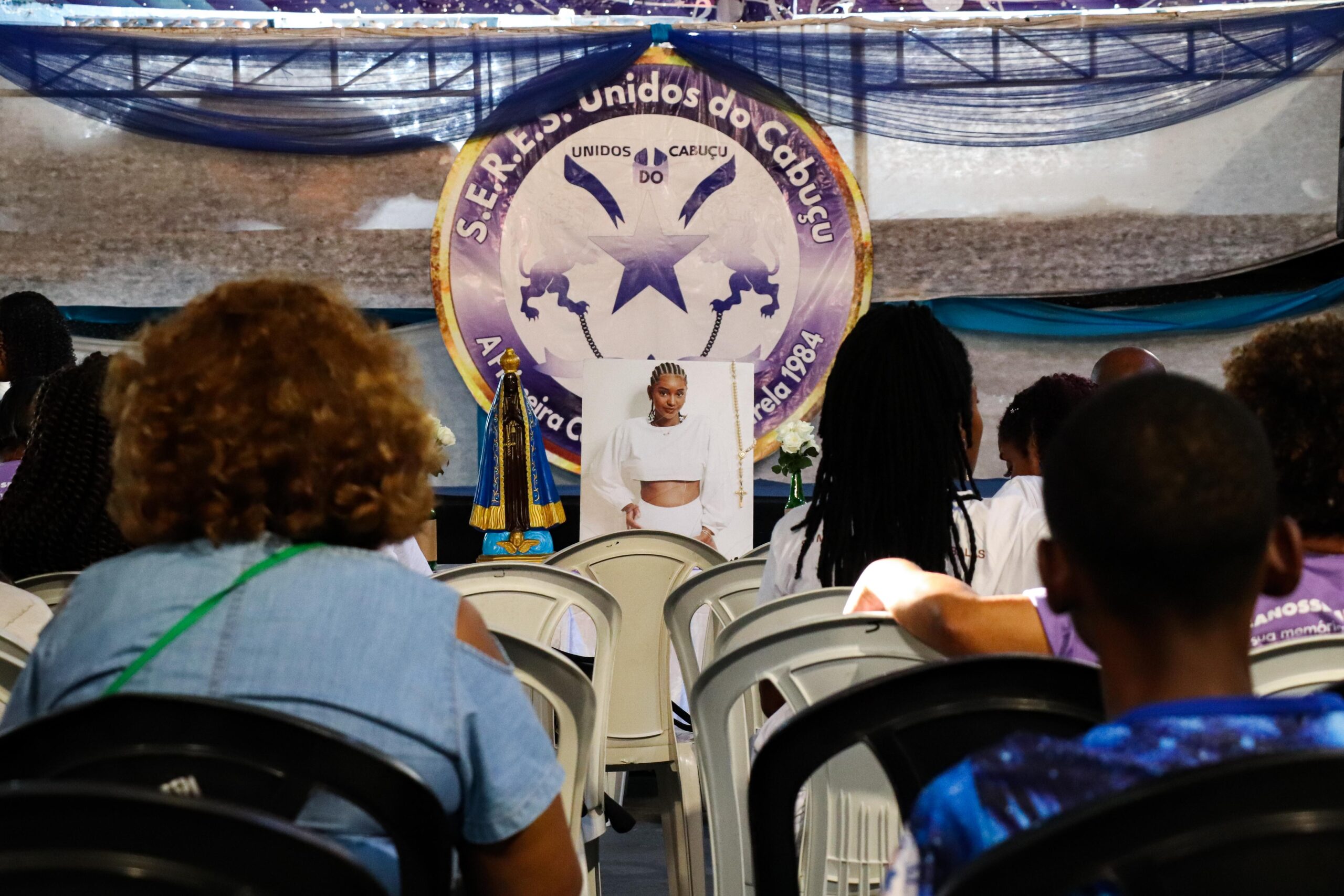
June 2024 reflected three years since the murder of Kathlen Romeu and her unborn baby in the favelas of Complexo do Lins, in Rio de Janeiro’s North Zone. An event was organized to mark the date at the headquarters of Unidos do Cabuçu—a samba school from the Barro Preto favela, located in Complexo do Lins—in memory of Romeu. Titled Justice Memorial for Kathlen and Her Baby, the event organized by the Black Community, also known as the Kath Collective, brought together family members, friends, acquaintances, residents, and politicians. They demanded #JusticeForKathlen and an end to the genocide of Afro-Brazilians. The event also celebrated the two lives that were taken prematurely, in an abrupt and senseless action carried out by the Rio de Janeiro Military Police (PMERJ).
On a hot day in June, just as it was three years ago in Rio’s North Zone, the tributes to Romeu included an ecumenical act, the presence of artists and fans of Black music, and a cultural and educational program for children, complete with painting and drawing. This was yet another act of the movement born around Kathlen Romeu. Denied their right to mourn, her family reaffirmed their right to answers from the State and to see those responsible for her murder convicted, as concluded by the Civil Police investigation.
“I will not give up on my daughter’s memory as long as I live, and if I fail… I know that my daughter left behind infinite seeds.” — Jackeline Lopes, Kathlen Romeu’s mother
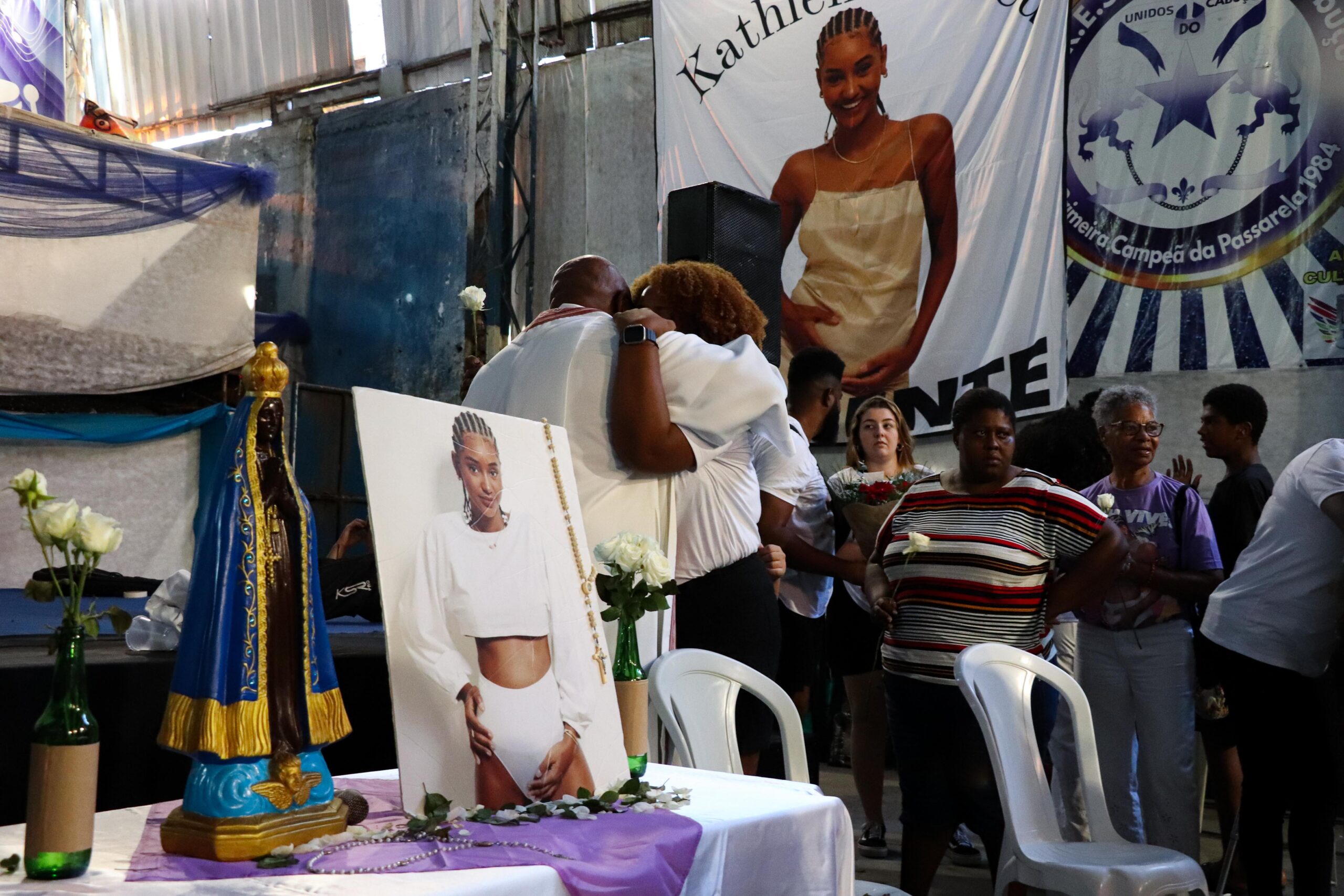
On June 8, 2021, Kathlen Romeu, a young Black pregnant woman and interior designer who was 24 years old at the time, was killed along with her unborn baby of 13 weeks. According to witnesses, police officers used a tactic known as ‘Trojan Horse,’ which involve the illegal invasion of a resident’s home, where officers hide and shoot at their chosen targets from inside. Romeu was walking with her grandmother Sayonara Fátima on the sidewalk when she was shot in the chest by a rifle and died.
At first, the Military Police denied the operation, claiming that they had responded to an attack by drug traffickers during a routine patrol by the Complexo do Lins Pacifying Police Unit (UPP). However, this account is fiercely contested by witnesses and Romeu’s family. The Brazilian Bar Association, Rio de Janeiro Chapter (OAB-RJ) has even stated that Romeu was killed in an illegal PMERJ operation. Her murder generated widespread uproar, resulting in protests and demonstrations that culminated in the introduction of Bill No. 4631/2021 at the Rio de Janeiro State Legislative Assembly (ALERJ), known as the Kathlen Romeu Bill. The bill, which is still in the legislative process, aims to prohibit Trojan Horse tactics and police ambushes across all of Rio’s favelas.
Ver essa foto no Instagram
After extensive and continuous protests concerning Romeu’s case, in 2021 her family met with Brazilian President Luiz Inácio Lula da Silva, who pledged to, when elected, create mechanisms to stop violence in impoverished communities and fight for justice for Kathlen and her baby. Her family members argue that, “justice delayed is justice denied!” To date, very little has been done and her family continues to await justice.
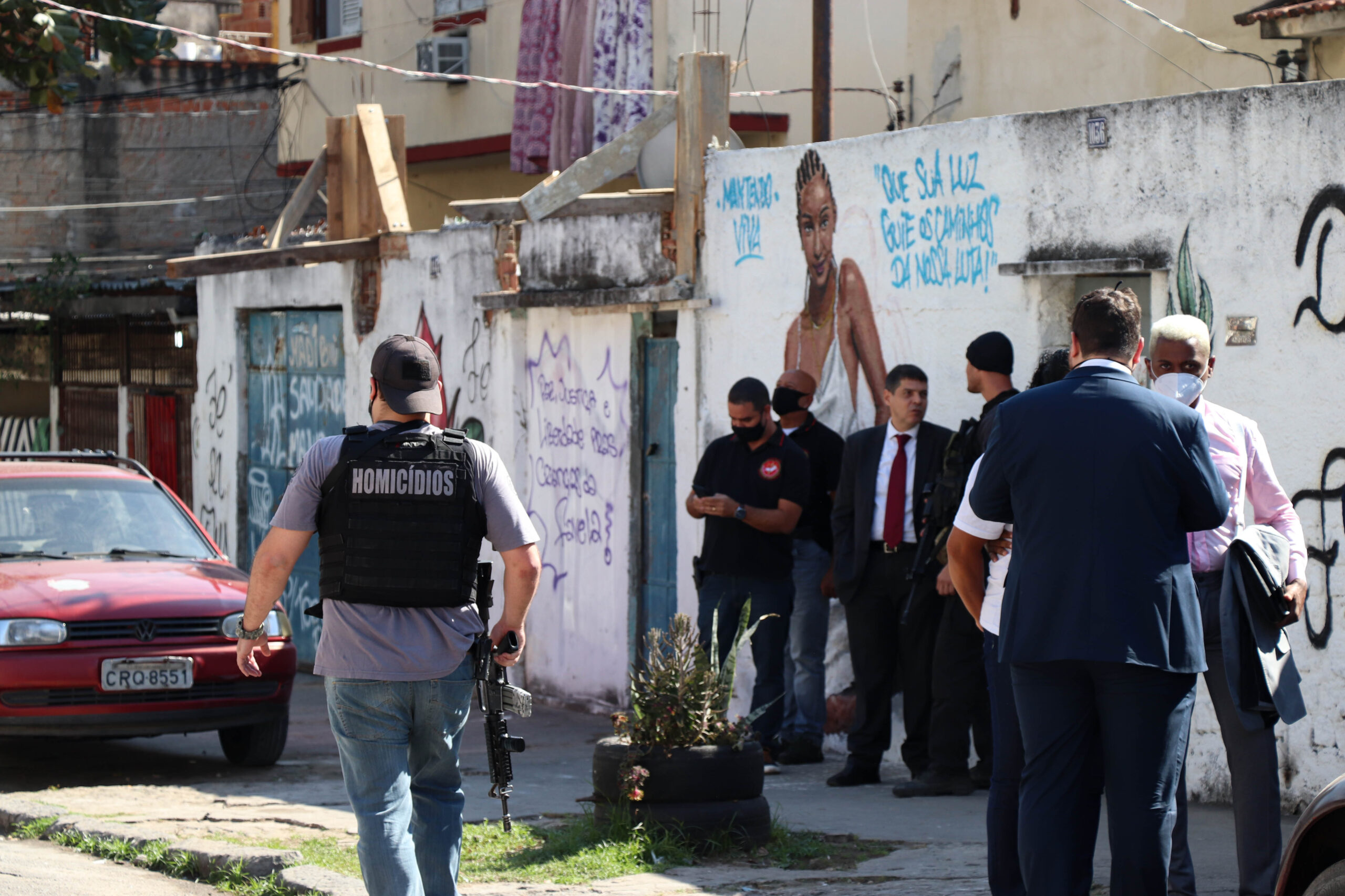
So far, no police officer has been arrested or punished for Romeu’s death. Officers Rodrigo Correia de Frias and Marcos Felipe da Silva Salviano, along with three other police officers, have been charged with murder and procedural fraud for altering the crime scene to simulate a confrontation. The Prosecutor’s Office requested the officers’ arrest, but the request was denied by the court. However, the accused officers may still face a public jury trial.
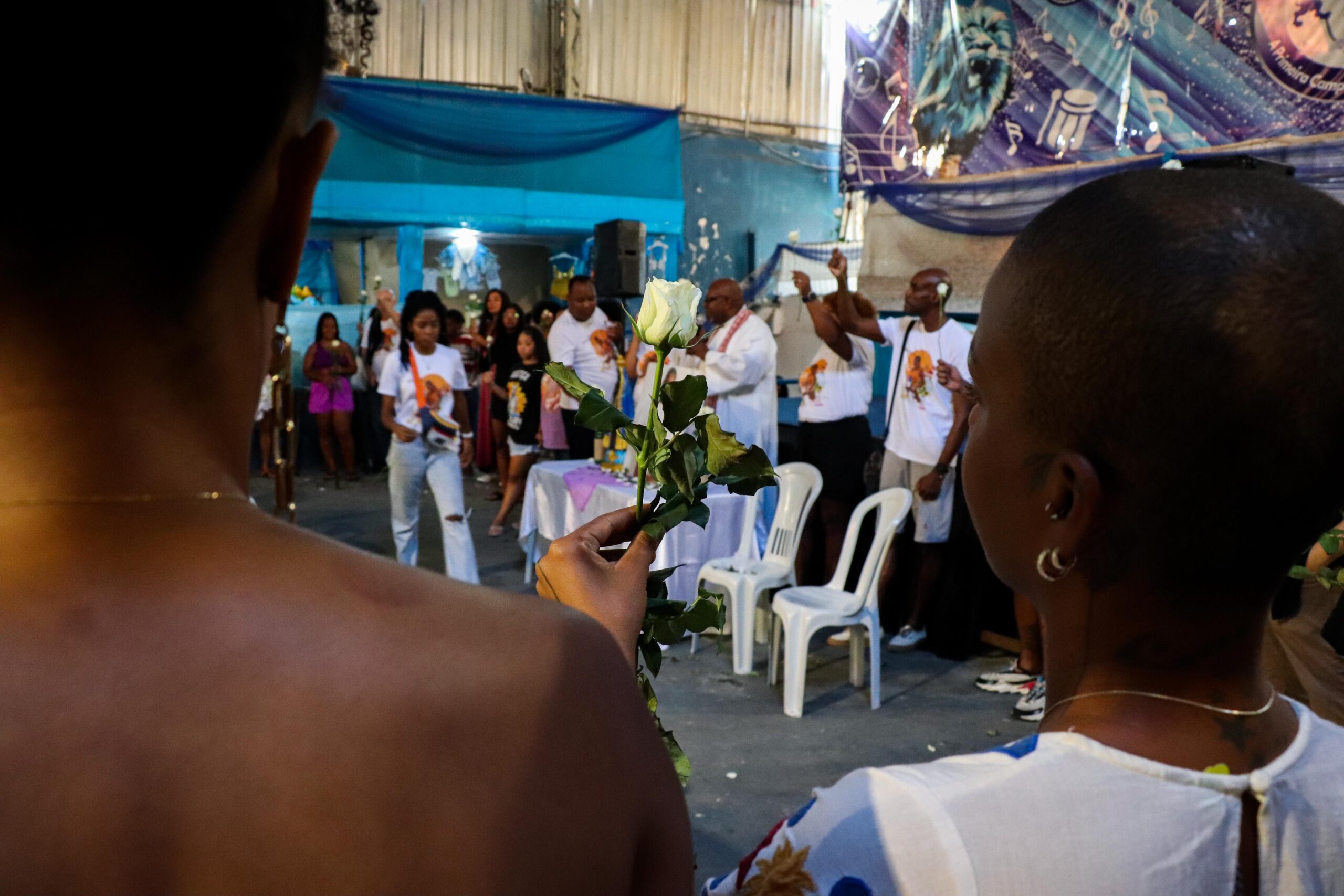
“Any Black body in Kathlen’s place could have been found there, slain. This encounter is very serious, very significant. It brings us struggle, persistence, but also blood, pain, sleepless nights, torment. The opposite of life is not death: it is the loss of life’s charm. Therefore, we do not perish! Kathlen lives on in our bodies, in our struggles. Resurrected! This is subversion, it is insurrection. The non-acceptance of death.” — Father Gegê, the Parish Priest of St. Bernadette Church in Manguinhos
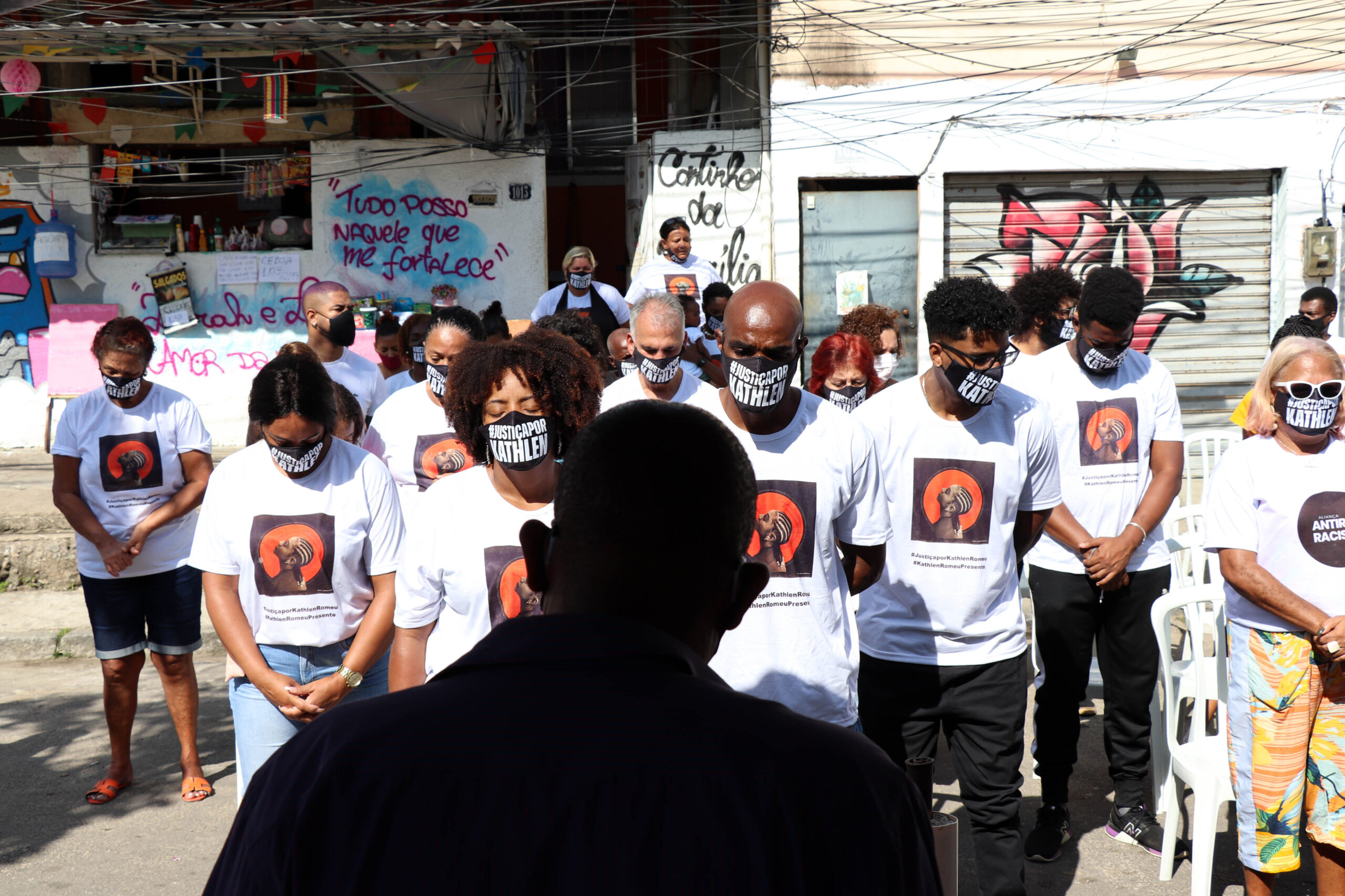
In Brasília, Rita Oliveira, executive secretary of the Ministry of Human Rights and Citizenship (MDHC) and Luzia Cantal, national Human Rights ombudsman, met with Romeu’s family and friends on June 5, 2024. At the meeting, an open letter was shared by several groups, including the Federation of Favela Resident Associations of Rio de Janeiro (FAFERJ) and the Black Community, asking for protective measures for Romeu’s family. The open letter also questioned the tenure of the accused on-duty police officers and defends the use of body cameras to reduce police lethality.
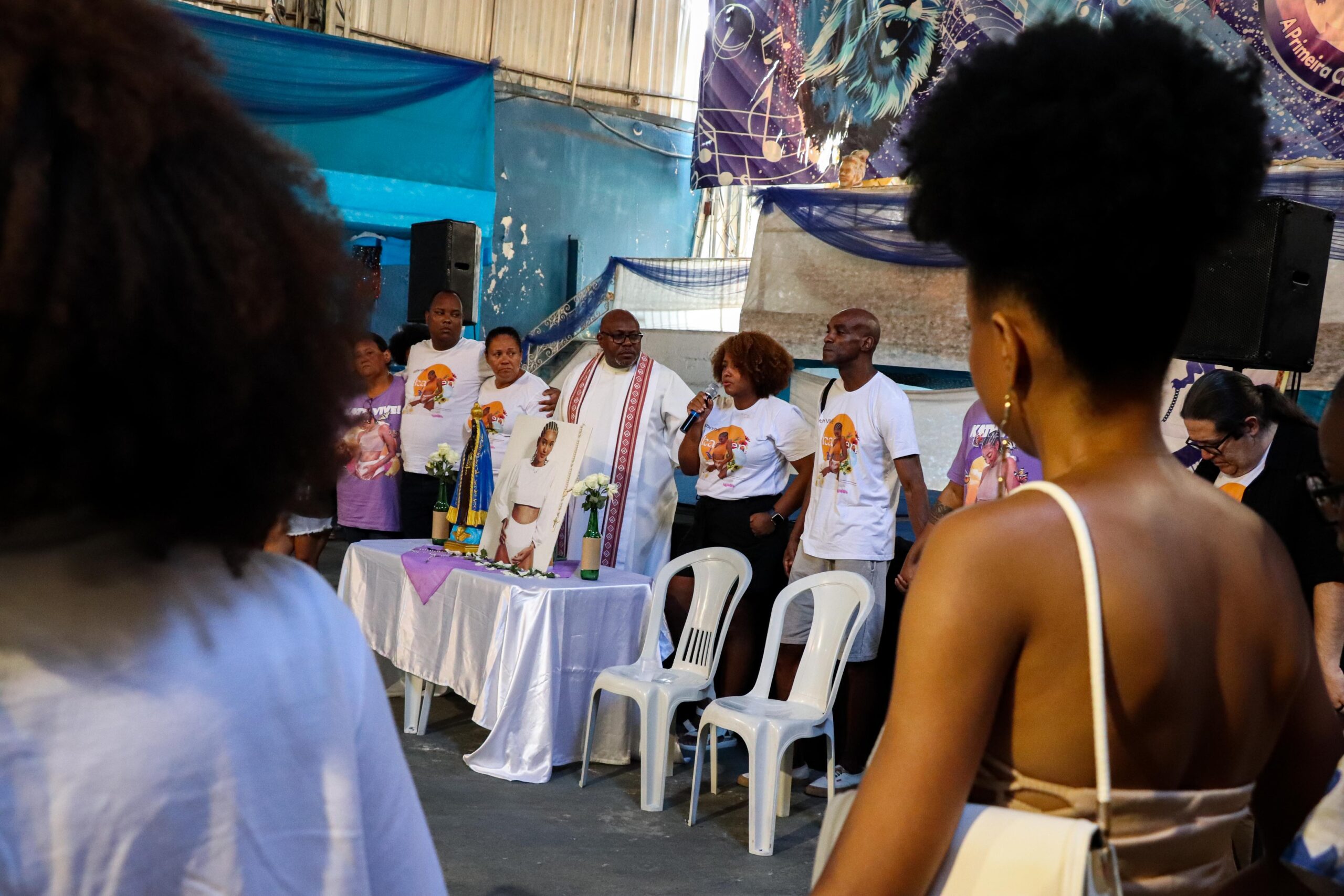
In another meeting, Human Rights Minister Silvio Almeida committed to sending a delegation to Rio de Janeiro led by Cantal, the national Human Rights ombudsman. The delegation will meet with the president of Rio’s Court of Justice, Ricardo Rodrigues Cardozo, and Attorney General Luciano Mattos.
Minister of Racial Equality Anielle Franco, who is also the sister of assassinated Rio Councilwoman Marielle Franco, will request the relevant state authorities and Military Police to suspend the five officers involved and expedite legal proceedings against them. Despite ongoing internal procedures, at least three of the officers remain on active duty. Besides Kathlen Romeu’s mother, Jackeline Lopes, the delegation also included Congressman Pastor Henrique Vieira, and Gabriel Siqueira, director of public policy at FAFERJ. The group met with Minister of Justice and Public Security Ricardo Lewandovski and Daiana Santos, president of the Chamber of Deputies’ Human Rights Commission.
“Why don’t you give up? Why do you persist? Why so much pain? And even though many others may suffer, where does this strength come from? What makes you fight? Either you feel shot, or you don’t walk together.” — Father Gegê
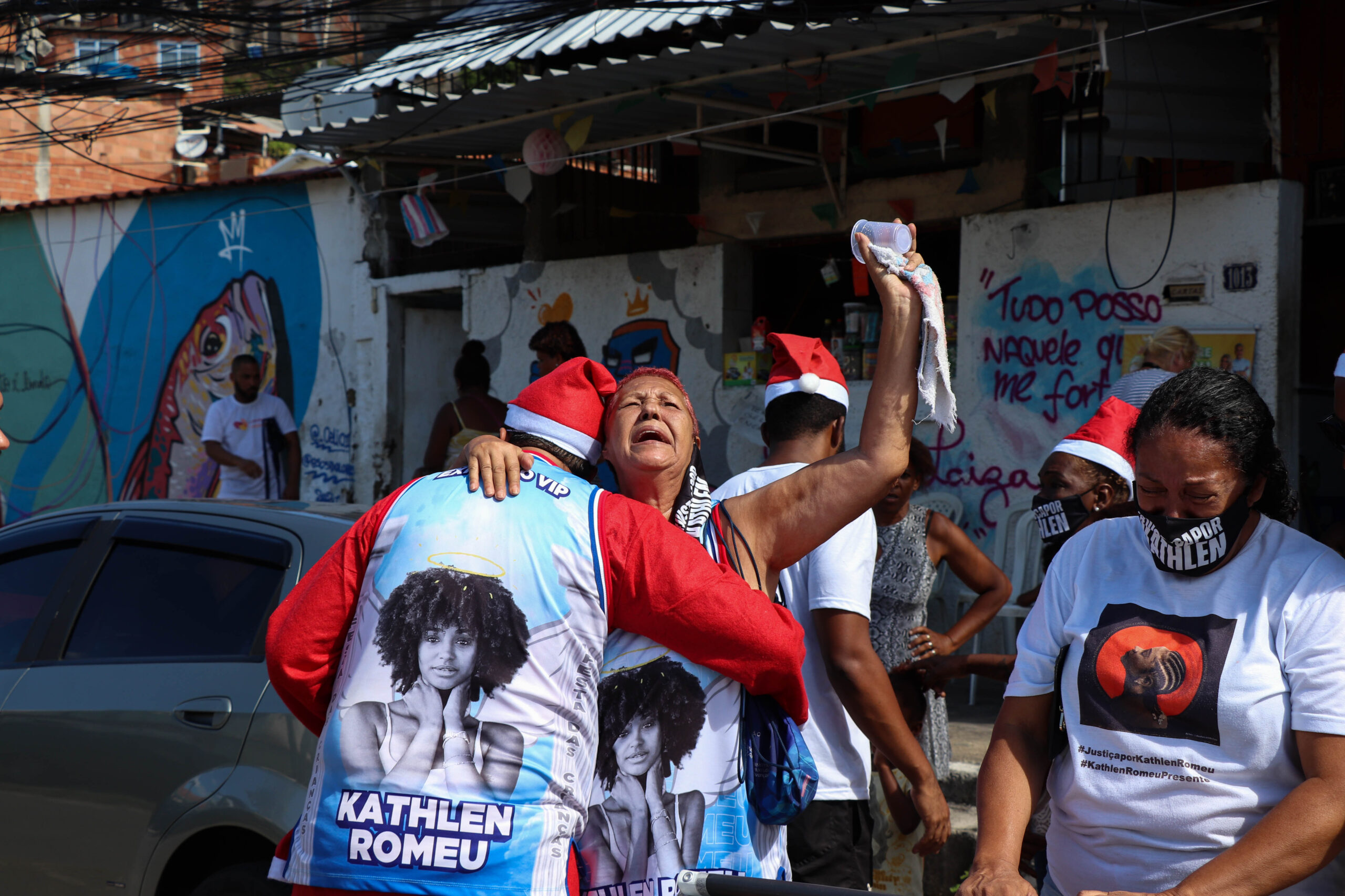
The June 2024 event honoring Kathlen Romeu concluded with attendees gathering in a large circle holding hands, as they chanted the names of other victims of violence perpetrated by Rio de Janeiro’s public security agents, such as Marielle Franco, Paulo Roberto, Ângela Romeu, Tábata Félix, Nívea Rodrigues, Cícero Guedes, Hugo Leonardo, Marcos Vinícius da Silva, Jonathan Oliveira, and Maicon da Silva Souza. Finally, everyone sang Umbanda and Catholic hymns together:
“Bahia, oh Africa, come here, come help us.
I cried, I used to cry, it was my mother who soothed me.
Rock me, mama! Rock me, mama!
A new day will come, a new sky, a new earth, a new sea,
And on that day the oppressed will sing freedom in a single voice.
Our Black Madonna, Our Lady of Aparecida,
Sovereign Quilombola Mother of God, Aparecida.”
About the author: Alexandre Cerqueira has a degree in International Relations and is a primary school teacher, writer, and photographer.
